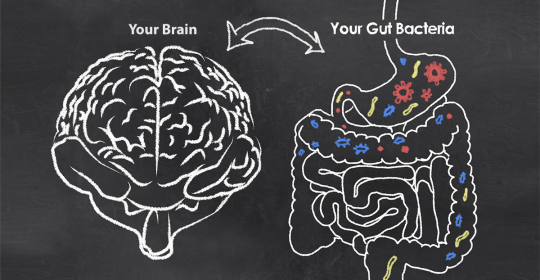
Gut Microbiome Is Causing Dangerous Malformations Of Blood Vessels In The Brain
Recently more and more studies show links between bacteria living in our guts and brain diseases such as Parkinson’s and Autism.
Now, a huge multicenter study published in one of the most respected journals, Nature, showed that a particular gut microbiome is causing malformations of blood vessels in the brain. Veins in the brain are becoming blood filled bubbles, which can leak blood or burst at any time. Some experience symptoms like seizures or stroke. In worst case a bursting bubble in the brain can be fatal.
So far there is no treatment available for cerebral cavernous malformations.
While researching these cerebral cavernous malformations, researchers accidentally found that a microbiome living in the intestines might be the cause. Certain bacteria (Gram-negative bacteria) are causing defects in the wall of the blood vessels. Thus, the vessels are forming the dangerous bubbles.
The researchers could show that a single course of antibiotics kills the microbiome permanently and protect from the dangerous malformation in the brain.
The link between brain and gut is somehow surprising but more studies have to explore this topic in the future.
Abstract, Nature Journal
Cerebral cavernous malformations (CCMs) are a cause of stroke and seizure for which no effective medical therapies yet exist. CCMs arise from the loss of an adaptor complex that negatively regulates MEKK3–KLF2/4 signalling in brain endothelial cells, but upstream activators of this disease pathway have yet to be identified. Here we identify endothelial Toll-like receptor 4 (TLR4) and the gut microbiome as critical stimulants of CCM formation. Activation of TLR4 by Gram-negative bacteria or lipopolysaccharide accelerates CCM formation, and genetic or pharmacologic blockade of TLR4 signalling prevents CCM formation in mice. Polymorphisms that increase expression of the TLR4 gene or the gene encoding its co-receptor CD14 are associated with higher CCM lesion burden in humans. Germ-free mice are protected from CCM formation, and a single course of antibiotics permanently alters CCM susceptibility in mice. These studies identify unexpected roles for the microbiome and innate immune signalling in the pathogenesis of a cerebrovascular disease, as well as strategies for its treatment.
The Abstract was originally published in the Journal Nature

